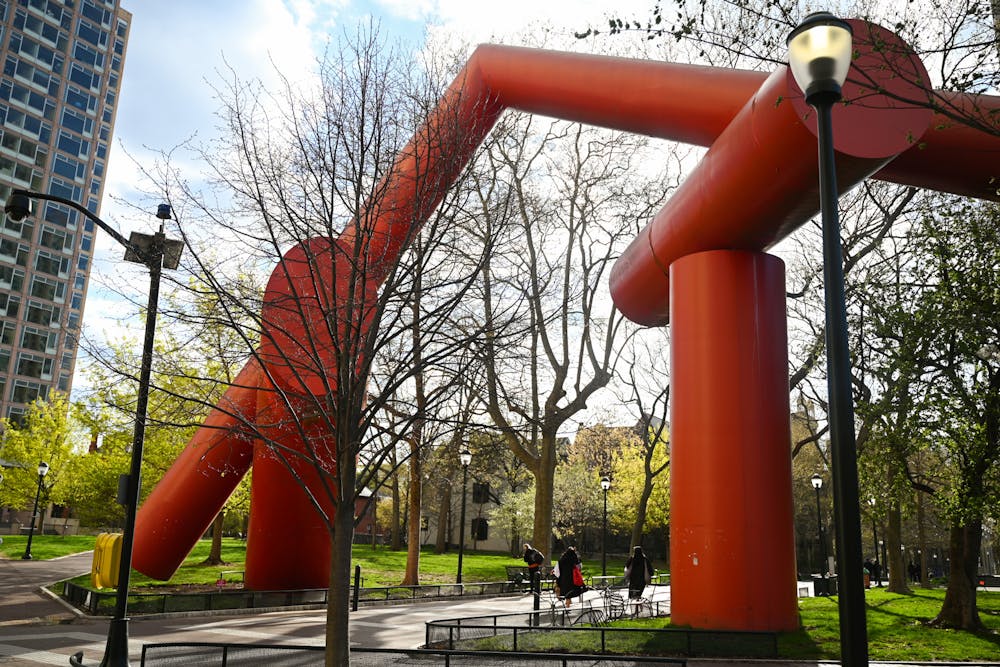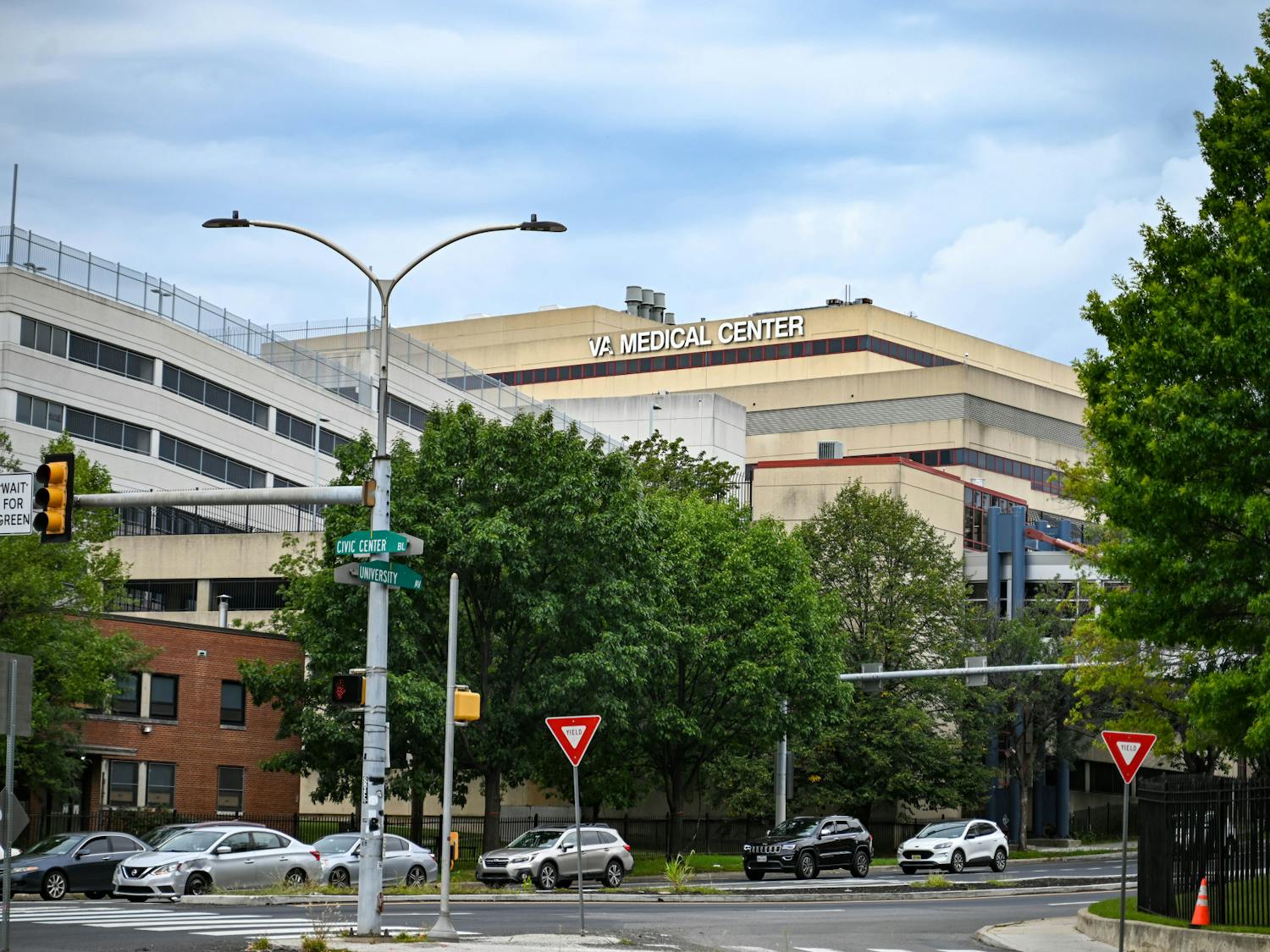Members of Penn’s Jewish community remain divided about federal actions taken by the Trump administration.
Since 1968 Wharton graduate and President Donald Trump returned to the Oval Office, his administration has enacted sweeping changes to higher education — oftentimes in the name of combatting antisemitism on college campuses. The Daily Pennsylvanian spoke with several Jewish students and faculty about their reactions to recent federal policies targeting higher education institutions, including immigration changes and funding cuts.
Jewish members of the Penn community expressed concern for the “attacks” targeting American colleges and universities, while others lauded Trump for “simply upholding federal law.”
2024 College graduate Eyal Yakoby — who has continually called for Penn to be defunded on X, the platform formerly known as Twitter — took issue with the characterization of Trump’s executive actions as “attacks” on Penn in an interview with the DP.
“I think calling it an attack is a mischaracterization,” Yakoby said. “President Trump is simply upholding federal law and the terms that every institution needs to abide by when they receive billions of dollars in taxpayer funding from the federal government.”
Yakoby emphasized the financial relationship between higher education institutions and the federal government does not allow “a University like Penn” to “break federal laws” and continue being “subsidized by the federal government.”
On March 19, the federal government announced that it would freeze over $175 million in federal funding to Penn, citing the University’s failure to bar transgender athletes from women’s sports.
While Yakoby called the cut to federal research funding a “tragedy,” he said that “all blame rests on the minority of professors who thought it would be a good idea to shut down campus last spring in order for them to erect an Intifada encampment in the middle of it.”
Jewish Penn faculty join thousands in signing ‘Not in Our Name' letter to college administrators
ADL gives Penn ‘C’ rating on 2025 Campus Report Card, marking improvement from last year
In spring 2024, pro-Palestinian demonstrators pitched tents on College Green for a 16-day-long Gaza Solidarity Encampment to protest the University’s ties to Israel. The encampment was met with threats of disciplinary action from Penn’s administration, along with opposition from pro-Israeli counterprotesters and some Jewish community members.
Wharton and Engineering senior Noah Rubin shared a similar gratitude for the Trump administration’s “strong stance” against what he described as “targeted violence and extremism” in a written statement to the DP.
“Jewish students have been harassed and assaulted while universities don’t punish the perpetrators,” Rubin wrote. “Universities have also become hubs for spreading antisemitism, degrading American values, and promoting violence.”
A College sophomore and member of Penn Chavurah — who requested anonymity for fear of retaliation — “reject[ed] the direct causation” between the federal crackdown and activism in an interview with the DP.
“I think if it wasn’t Palestinian activism, it might be something else,” the student said. “The University is a place where people are able to organize, or at least just freely share their thoughts, and kind of a rare place of free speech in the U.S., and the government’s trying to eliminate that space.”
The student also rejected the idea that “Palestinian activism and people caring about stopping a genocide have anything to do with Jews and Jewish identity.”
“The Jews are the excuse,” the student said, “and they’re the loudest supporters, too. … It’s a cover for repression.”
Yakoby disagreed, pointing to an “irony” within how free speech is defended on campus.
“The topic of free speech is only brought up when there’s a crackdown on students and professors who were supporting terrorist organizations,” Yakoby said. “But once it was cracking down on simply having an opposing view from the ideological monolith that Penn produced, no one seemed to care.”
He described the solidarity efforts as “violent protests that support terrorist organizations” that received disproportionately more attention when they were shut down then when “Mike Pompeo’s speech was shut down, when the Prime Minister of India — Narendra Modi — was barred from speaking on campus, [and] when Ben Shapiro was barred from speaking on campus.”
The College sophomore also spoke on student free speech at Penn, referencing the University’s 2023 decision to deny Penn Chavurah’s request to screen the documentary “Israelism.”
“[That was] a movie by a Jewish group directed by Jews, and it was canceled,” the student said. “Were we surprised? No, that’s just how it is, right? Pro-Palestine activism … has been always policed and under-attack. Now people are being kidnapped for it and deported.”
An April 7 email from International Student and Scholar Services to the international Penn community announced that “at least three” student visas were revoked by the federal government.
According to ISSS, Penn learned of the changes to the students’ immigration statuses through a check of the Student and Exchange Visitor Program database — an online system managed by the Department of Homeland Security that tracks the records of international students studying in the United States.
Although the federal government has since reactivated the visas and immigration statuses of all seven Penn affiliates whose statuses had previously been terminated, uncertainty surrounding international students’ immigration statuses has rained.
“There’s no comparison to Ben Shapiro,” the College sophomore added. “The state wants to silence voices who are critical of their support and their complicity in a genocide over the last two years. And they also want to show that no matter how fancy the school — if you go to Columbia, if you go to Tufts — it doesn’t matter.”
“Jews always remember that … they were victims of fascism,” the student continued. “The modern scapegoats and marginalized groups right now are immigrants, particularly Muslim immigrants. … The targets are different, but it’s the same thing happening.”
Creative writing professor Anna Badkhen also referred to the “genocide in Palestine” as a point of concern for the Jewish community.
Numerous human rights organizations and experts — including Amnesty International, Human Rights Watch, and the United Nations — have called Israel’s actions in Gaza a genocide of the Palestinian people.
“As a Soviet Jew and a former war correspondent who has survived one totalitarian (and truly, officially anti-Semitic) regime and documented dozens of others, I can say that the biggest danger at this point lies not with the Trump administration,” Badkhen wrote.
She added that Penn’s “biggest threat” is the people who “refuse to acknowledge … what even Amnesty International has now described as live-streamed genocide in Palestine — and who all too willingly throw to the wolves their colleagues and students who speak against Zionism.”
Penn Hebraica Library Specialist Dainy Bernstein similarly emphasized the University’s “clear obligation to resist the federal government’s directives built on Orwellian redefinitions of terms like antisemitism and policies like Title IX” in a written statement to the DP.
“We’ve been told that invoking comparisons with Nazism loses its power when we do it too often,” Bernstein wrote. “But perhaps the way to see it is that if the comparison makes sense so often, we’re dangerously close to falling off the precipice and should do everything we can to turn back.”
Both Badkhen and Bernstein were among the dozens of Jewish Penn professors to sign an open letter — titled “Not in Our Name” — last month. The letter called on University leaders across the country to resist recent federal actions targeting pro-Palestinian organizing on college campuses and denounced “anyone who invokes our name — and cynical claims of antisemitism — to harass, expel, arrest, or deport members of our campus communities.”
Jewish Penn faculty join thousands in signing ‘Not in Our Name' letter to college administrators
ADL gives Penn ‘C’ rating on 2025 Campus Report Card, marking improvement from last year
Finn Ryan is a News Editor at The Daily Pennsylvanian and can be reached at ryan@thedp.com. At Penn, he studies English and political science. Follow him on X @FinnRyan_.









